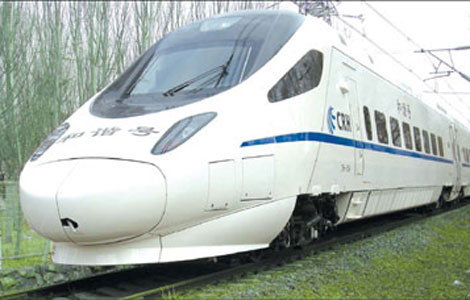Economy
S&P threatens to cut US credit rating on deficit
Updated: 2011-04-19 09:25
(Agencies)
NEW YORK - Standard & Poor's threatened on Monday to downgrade the United States' prized AAA credit rating unless the Obama administration and Congress find a way to slash the yawning federal budget deficit within two years.
S&P, which assigns ratings to guide investors on the risks involved in buying debt instruments, slapped a negative outlook on the country's top-notch credit rating and said there's at least a one-in-three chance that it could eventually cut it.
|
||||
If investors start demanding higher returns for holding riskier US debt, the rise in bond yields would crank up borrowing costs for consumers and businesses. That would threaten to hurt the economy as it recovers from the worst recession since World War II.
"This new warning highlights the need for the US to take better control of its fiscal destiny if it is to avoid higher borrowing costs and maintain its central role at the core of the global economy," said Mohamed El-Erian, chief executive at PIMCO, which oversees $1.2 trillion in assets and has a short position on US government debt.
Major US stock indexes fell than 1 percent on the day. Longer-dated government bond prices initially fell but recovered to post solid gains as falling stocks took over as the main driver for price action in the Treasury market. Bond prices frequently trade inversely to stocks.
The dollar also rose as nore immediate fiscal problems in Greece hurt the euro and supported some US assets.
The cost of insuring Treasury debt against default at one point on Monday neared a 2011 high, though it was well below lofty levels hit two years ago when fears of a double-dip US recession raged.
Budget Battle
The threat of a downgrade raises the stakes in the struggle between President Obama's Democratic administration and his Republican opponents in the House to get control over a nearly $1.4 trillion budget deficit and $14.27 trillion debt burden.
The White House last week announced plans to trim $4 trillion from the deficit over the next 12 years, mostly through spending cuts and tax hikes on the rich. Congressional Republicans want deeper spending cuts and no tax increases.
The deficit problem has become crushing since the financial crisis of 2008. Now for every dollar the federal government spends, it takes in less than 60 cents in revenue.
A budget deficit running at nearly 10 percent of output and expected to grow will likely further swell a public debt load that's already more than 60 percent of the country's gross domestic product.
"Because the US has, relative to its AAA peers, what we consider to be very large budget deficits and rising government indebtedness, and the path to addressing these is not clear to us, we have revised our outlook on the long-term rating to negative from stable," S&P said.
Even so, Austan Goolsbee, the top economist at the White House, downplayed S&P's move, telling CNBC on Monday it was a "political judgment" that "we don't agree with."
DoubleLine Chief Executive Jeffrey Gundlach said on Monday that the S&P warning "should serve as an effective cattle prod in pushing the politicians toward a program of spending cuts and tax increases."
Specials

Urban breathing space
City park at heart of industrial hub positions itself as top tourism attraction

On a roll
Auto hub Changchun also sets its sight on taking lead in railway sector

The stage is set
The Edinburgh International Festival will have a Chinese flavor this year.

